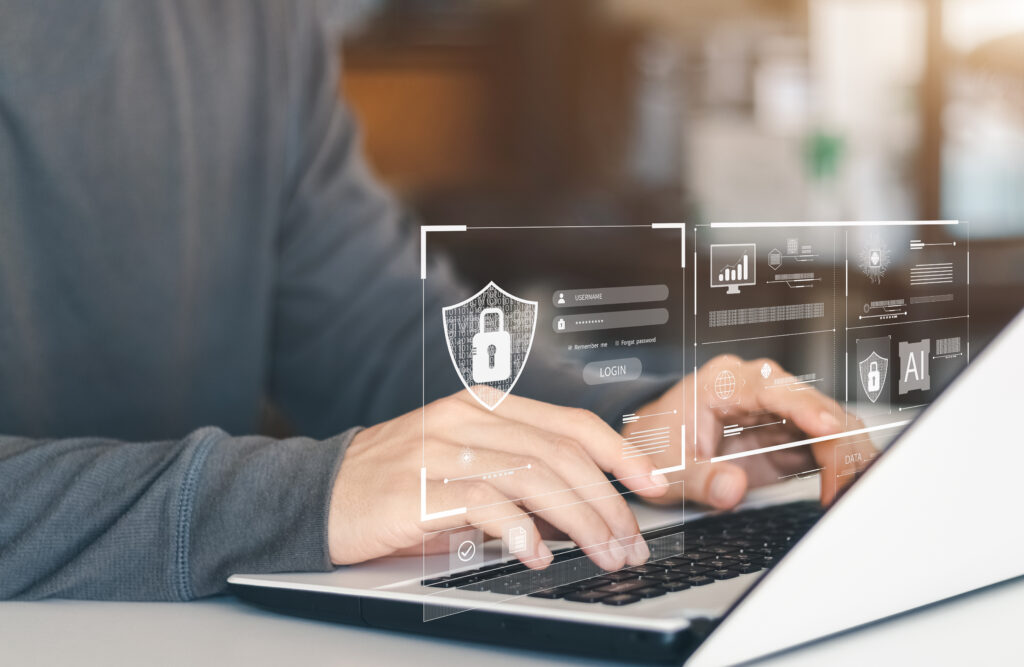The Cybersecurity Skills That Turn Professionals into Leaders
Stepping up into leadership roles or transitioning into data-driven security roles requires cybersecurity management skills beyond technical know-how. Today’s cybersecurity leaders must combine technical expertise, business strategy, governance, and ethical decision-making. The Executive Master in Cybersecurity Management equips you with this blend of capabilities—training professionals not just to defend systems, but to lead enterprise-wide resilience.
Strategic Leadership Skills for Cybersecurity Management
Being a chief officer or manager in Cybersecurity requires a mix of technical skills, strategic foresight, and leadership abilities. Which skills should a cybersecurity professional focus on to transform into a leader?
Strategic Visioning and Adversarial Thinking
Cybersecurity leaders must think several steps ahead, anticipating not only the next technological challenge but also the moves of potential adversaries. Leaders who can think like attackers strengthen defenses and ensure resilience across the enterprise. Strategic and adversarial thinking enables leaders to anticipate attack patterns, understand how threats evolve, and design security measures that go beyond short-term fixes.
At AIM, the Executive Master in Cybersecurity Management program trains students to develop this mindset through scenario planning and applied simulations, preparing them to lead organizations in a proactive, rather than reactive, manner. Students not only learn how to configure controls but also how to apply these fundamentals in ways that guide organizations toward resilience and long-term stability.
Investigation and Reporting Principles
Effective leaders in cybersecurity must master investigation and reporting practices to establish accountability and transparency. These skills will be useful when they guide teams in gathering evidence, documenting incidents, and presenting findings to executives, regulators, or law enforcement.
Moreover, cybersecurity leaders must be able to communicate technical investigations in clear business terms to gain the trust of stakeholders and position themselves as credible decision-makers in their organizations.
AIM equips students with both technical investigation skills and the ability to translate findings into actionable recommendations for boards and leadership teams. With this program, graduates become powerhouses who bridge the gap between the technical and business sides.

Project Management and Financial Management
Cybersecurity leaders must manage projects from planning to execution while balancing budgets and resources. Project management skills ensure that initiatives like compliance rollouts or system upgrades are completed on time and aligned with business goals.
Financial management is just as vital, as leaders must justify investments, prioritize spending, and communicate value to executives. An organization’s enterprise resilience depends on the cybersecurity leader’s capability to prioritize the right developments.
Our Executive Master in Cybersecurity Management program does not neglect these capabilities. The curriculum prepares graduates to lead complex initiatives with both technical insight and business acumen.
Networking and Operating Systems Basics
Leadership requires a firm grasp of how digital systems interconnect and operate. Understanding networking and operating systems gives leaders the ability to make informed decisions about controls, architecture, and system monitoring. It helps avoid strategic planning risks becoming disconnected from operational realities.
The EMCSM program integrates training that covers essential technologies, equipping future leaders with the technical literacy required to guide teams, evaluate infrastructure, and oversee secure digital ecosystems.
Understanding of Compliance and Regulation
Cybersecurity leaders operate at the intersection of law, business, and technology.
Thus, apart from the technical and management aspects of their role, they must ensure that policies align with regulations while supporting organizational goals. Knowledge of compliance frameworks helps leaders manage risk, keep the trust of executives and regulators, and keep the organization’s reputation intact.
The AIM EMCSM program integrates preparation for the Certified Information Systems Security Professional (CISSP) exam, a globally recognized credential in information security leadership. By combining academic learning with certification readiness, graduates position themselves to lead with authority as managers or Chief Information Security Officers (CISOs) in global organizations.
Incident Response Leadership for Enterprise Resilience
Leadership in cybersecurity requires foresight in designing comprehensive response strategies before an incident occurs. They must outline clear processes for containment, communication, and recovery while ensuring alignment with business priorities. Their proficiency in planning incident response strategies ensures their organization is prepared to act swiftly and decisively when faced with a breach.
Through the AIM master’s program, students engage in exercises that simulate complex attack scenarios, allowing them to refine their cybersecurity management skills in designing strategies that protect assets, preserve trust, reduce potential legal or financial fallout, and overall, maintain business continuity.

AI Awareness and Ethical Judgment
Leaders must not only understand how AI tools can improve detection and response but also weigh the ethical implications of using them. Concerns like privacy, fairness, and transparency require thoughtful judgment that balances innovation with responsibility.
The Executive Master in Cybersecurity Management program trains students to take advantage of artificial intelligence and AI-powered tools and apply them responsibly and critically. Graduates are prepared to lead conversations on AI adoption, ensuring their organizations remain secure and can push technology forward while upholding ethical standards.
Innovation and Continuous Learning
Cybersecurity leaders must stay abreast of emerging technologies, evolving threats, and new security methodologies to strengthen their organization’s defenses. Because the cyber threat environment changes as fast as technology evolves, effective leaders make innovation and continuous learning part of their strategy to remain adaptable and effective.
At AIM, the Executive MCSM program fosters this mindset by incorporating current research, case studies, and the latest industry trends into the curriculum. Students gain the ability to evaluate and use new tools while developing a commitment to lifelong learning and professional growth.
Critical Thinking and Problem Solving
Technical knowledge is only part of your toolkit. Cybersecurity leadership demands the ability to interpret complex evidence and make sound decisions under pressure. Leaders must decide which vulnerabilities to address first, how to balance operational needs with security, and when to escalate an incident to regulators or law enforcement.
At AIM, critical thinking is embedded throughout the curriculum. Students develop the confidence to navigate incomplete information and high-stakes environments, ensuring they can guide teams and organizations toward effective, balanced decisions.
What Can the Skills Developed by Cybersecurity Leaders be Used For
Skills in cybersecurity open multiple paths toward high-impact leadership roles. Here’s how each path benefits from these skills:
1. Threat Intelligence
Future cybersecurity leaders must anticipate emerging threats and apply insights to secure their enterprises. Graduates of the EMCSM program have the capabilities and correct mindset to thrive in the field of threat intelligence where they are directly responsible for safeguarding organizational resilience.
2. Governance, Risk & Compliance Leadership
By aligning policies with regulatory frameworks, leaders ensure their organizations remain both secure and credible. Graduates of AIM are well-versed in both the technical and business aspects of cybersecurity, so they are equipped to lead organizations in managing risks and ensuring compliance.

3. Incident Response Team Leader
Strong incident response skills are required of leaders so they can mobilize teams quickly, contain damage, and communicate effectively amidst crises. AIM graduates are ready to direct enterprise-wide responses that protect brand reputation and customer trust.
4. Strategic Advisor & Consultant
Combining technical depth with strategic and leadership skills make graduates qualified to guide board-level decisions and consult with firms on balancing security with long-term business goals.
5. Specialized Roles
Leaders with advanced expertise can transition into specialized areas like cloud security, industrial control systems, and AI defense. These high-demand roles often serve as stepping stones to CISO or Cyber Risk Manager positions.
6. Educator and Mentor
Pursuing a master’s degree in Cybersecurity allows professionals to be part of expanding the body of knowledge in the field, which contributes to stronger security for all.
Leaders also shape the next generation by teaching, mentoring, and cultivating a culture of security awareness within organizations—ensuring resilience is not just a system but a mindset.

Be a Leader in Cybersecurity with the Right Skills
Complement your technical know-how with strategic leadership skills to excel in cybersecurity management. Professionals need a strategic perspective to align technology with enterprise resilience and, of course, the ability to lead their team in times of crises.
At the Asian Institute of Management, we equip driven individuals to lead with confidence. An inside look into our EMCSM program shows how the curriculum blends theory, real-world application, industry-aligned certifications, and expert guidance to prepare professionals who not only master cybersecurity but also lead their organizations through evolving challenges. Inquire now.


